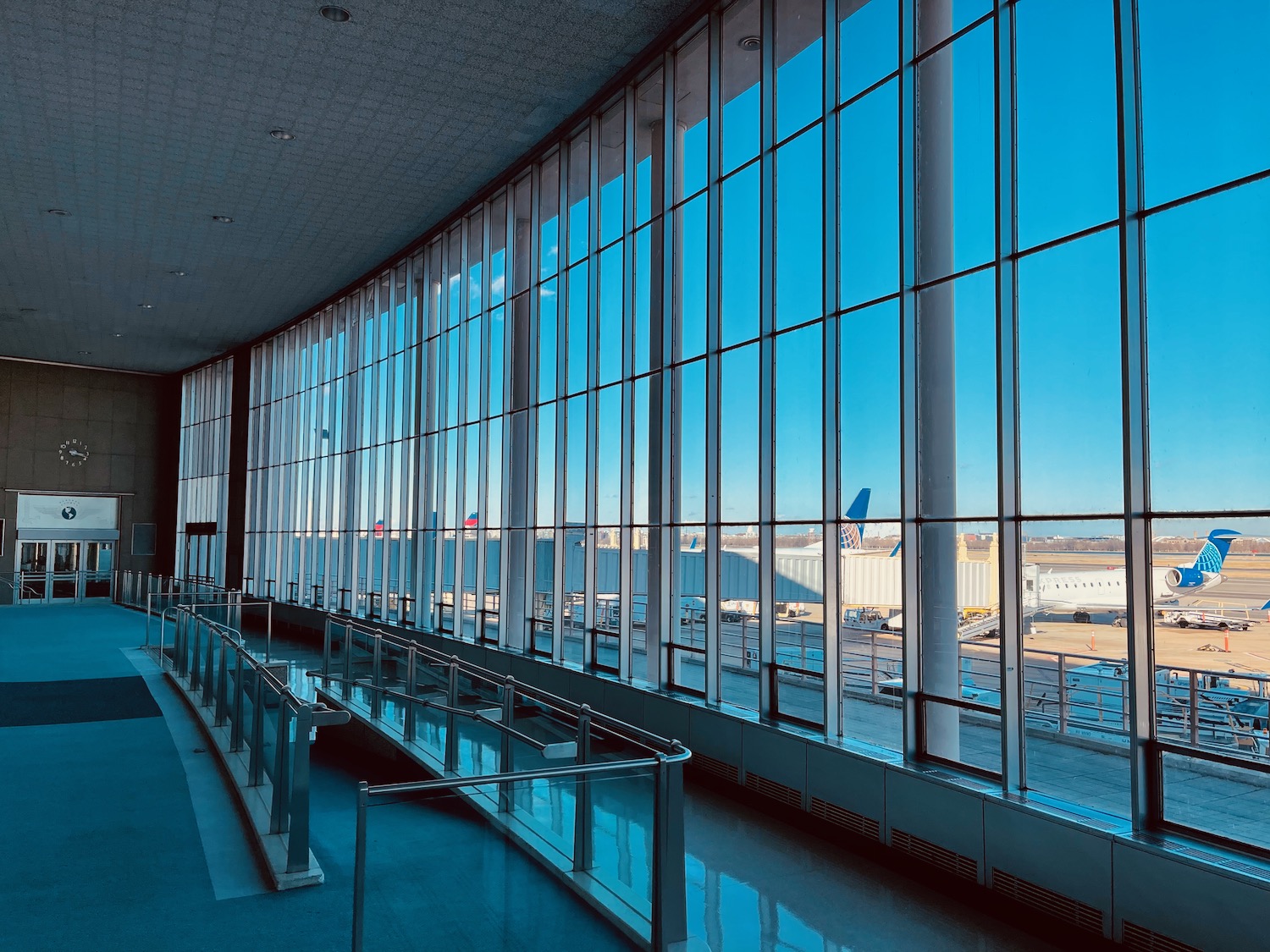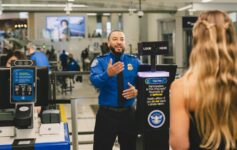
Behind the scenes, Delta Air Lines and United Airlines are making the case that the other should be passed over to receive extra Washington National Airport (DCA) slots. Their back-and-forth reminds me of two siblings fighting over a toy…
United + Delta Battle For DCA Slots
Both Delta and United have filed “comments” with the US Department of Transportation concerning the upcoming quintet of slot awards at DCA. Delta wants to be awarded Seattle (SEA) service while United wants to be awarded second-daily San Francisco (SFO) service.
Delta Says United Should Be Passed Over For DCA Slots
Delta thinks United should not have any slots because it opposed additional beyond-perimeter slots in the first place (in order to protect its entrenched fortress hub at nearby Washington Dulles):
“United, the carrier that was so fervently opposed to the prospect of new competitive service options at Washington, D.C.’s premier airport that it spent millions of dollars and vast amounts of political capital to excise any provisions in the FAA Act and predecessor FAA Reauthorization bills that would authorize new DCA flights, has abruptly reversed course, proposing a beyond perimeter destination in San Francisco that United already serves nonstop from DCA.”
Is there hypocrisy there? I don’t think so. You can oppose something and stil take advantage of it (like a tax cut) without being hypocritical.
Delta argues that United already has an SFO-DCA flight and already has competition with Alaska, while Alaska has two SEA-DCA flights of its own.
“United’s election to use a scarce public asset to double down on a beyond perimeter destination that it already serves – and that already has healthy competition (from Alaska) – underscores United’s aversion to meaningful competition at the Washington, D.C. area airports. Most importantly, United’s proposal is not consistent with either the letter or spirit of Section 502 of the FAA Act because it doesn’t enhance competition.”
That’s a fair argument, though United’s response is that the Bay Area market is far larger than the Seattle market and that a well-timed second-daily flight for United would maximize benefit for West Coast travelers. That’s also a reasonable argument.
“United elected to double down on its DCA-SFO service, and, as a backup, enter the competitive fray in an LAX market that already benefits from a healthy mix of competition. The Department should reject United’s proposals or, alternatively, relegate them below Delta’s in the decisional hierarchy.”
Of course, Delta doesn’t want United to fly to Los Angeles…that would mean more competition for Delta. It’s not surprise that Delta thinks LAX already has “enough” competition…
Delta turns bitter, calling United “deceptive” and self-serving:
“United would have the Department ignore that it unleashed a protectionist lobbying effort to kill the provisions in the FAA Act that would add incremental DCA flights, repeatedly and falsely claiming that such flights would adversely impact United’s hub network at IAD, cause congestion, and, worse, endanger safety at DCA. United now reprises its deceptive political tactics with a duplicative, self-serving proposal for DCA-SFO service that in no way enhances competition and therefore fails under the applicable statutory criteria.
“Whereas United proposes to supplement its own service on a route that already has competition, Delta proposes to introduce new competition on a route that lacks it and sorely needs it.”
Delta again makes the case that a fifth-daily LAX flight does not make sense:
“LAX is already served by three airlines – more than any other beyond perimeter destination – and creating a fourth competitor on this route will not meaningfully enhance competition relative to Delta’s proposal. Though United does not serve LAX nonstop from DCA, United’s entry into that nonstop market would hardly move the competitive needle, as Los Angeles already enjoys four nonstop flights from DCA each day.”
Again, let me translate that for you: we don’t want any more competition on the lucrative LAX route, even though Alaska, American, and yes, us, Delta, are able to charge a large premium for the convenience of this route and even though there is tremendous demand in the LA region for this service.
Now let’s turn to United.
United Says Delta Should Be Passed Over For DCA Slots
United emphasizes that while Delta’s request for SEA is “understandable,” it is an inferior choice because of the limited connectivity in Seatlte on Delta:
“Delta’s proposal to serve SEA should not be selected over United’s superior proposal to serve SFO. Delta’s focus on SEA for additional beyond-perimeter service, while understandable given that it is its primary West Coast hub, pales in comparison to United’s choice of the far more globally connected SFO.”
United rests on its contention that there is far more demand in the Bay Area than Puget Sound:
“In terms of passenger demand by annual bookings, the numbers speak for themselves: United’s Washington, D.C. ‒ San Francisco route is 1.4 times larger than Delta’s Washington, D.C. ‒ Seattle route. Because each of these routes – DCA- SEA and DCA-SFO – has only two flights today, clearly United’s larger route of DCA-SFO, which is more underserved, will have a more positive impact than Delta’s proposal. While United’s proposal will provide round trip connections between DCA and 25 Western U.S. destinations via SFO, Delta has not provided any beyond-connectivity data. And, unlike United’s proposal, Delta’s DCA-SEA-DCA schedule does not provide any time-of-day enhancements for consumers compared to flight times offered by Alaska.”
United argues that both SFO and SEA already have two daily nonstop flights to DCA and the clear winner for a third route should be SFO over SEA. Where United might be weaseling with the numbers though is combining Washington Dulles and Washington National into a single market and arguing there is tremendous demand when much of that demand may be a byproduct of United funneling connecting traffic through its Washington Dulles hub rather than exclusive demand for Washington, DC service.
Delta’s proposed flight timing for its SEA service approximates Alaska’s current schedule, leading United to point out that its own second SFO flight would depart nowhere near either the current United or Alaska flights between DCA and SFO.
Finally, United saw fit to add a gratuitous dig about Delta’s self-love:
“Finally, Delta’s application has pages and pages of text congratulating itself on Delta’s operational metrics, awards, and employee programs. These may be important to Delta’s business objectives but none of them are decisional criteria for the Department in route case proceedings. The Department should prioritize applications and routes that hit the mark by maximizing connectivity and consumer options, and in this regard, United’s proposal clearly surpasses Delta’s.”
You see what I mean about quarreling children?
CONCLUSION
Reading these protracted, self-serving communications makes me chuckle and brings to mind the sort of debate that takes place in the UK House of Commons. There are theatrics on display, not just arguments. Maybe I should go work for an airline legal department? It’s like clickbait…
As for who has the stronger position, I think United is correct that a third daily SFO-DCA flight would benefit more people than a third daily SEA-DCA. On the other hand, Delta is right to point out that United overstates the cases for connectivity since in most cases, connecting from the West Coast via its Denver (DEN) hub would be quicker than via SFO.
I didn’t even get into the whole incumbent versus limited incumbent battle, with the status of Alaska Airlines, JetBlue, Spirit, and Frontier in dispute. The better solution is congestion pricing and eliminating the slots altogether…but that would make too much sense for Congress…
Who do you think makes the stronger argument, Delta or United?




It clearly should go to United as SFO has the best connectivity to Asia and Australia flying. It’s also a tech hub and would make the most sense on paper especially since it’s a base for United.
Seattle is a weak hub for Delta and has bad connectivity. Overall it’s one of Delta’s weakest hubs revenue wise and it likely will get worse.
Legal departments are filled with drones , mindlessly on the offensive and defensive , whilst giggling and preening .
They forgot other arguments….
United should be punished for getting rid of the tulip logo
United breaks guitars
countered by
Delta’s legendary continued and industry leading SkyPesos devaluations
Delta’s failure to extend its 20 minute bag guarantee to international flights arriving in Seattle
This is a rare miss by Delta. Nobody wants to go to LAX, SFO, or SEA. The destinations people really want to go to are ATL, DTW, and MSP. And fortunately for the world’s most premium airline, they’re all within the perimeter. Delta should focus their lobbying on more slots to SLC, which, as everyone knows, is the most popular American city outside of the perimeter.
The rule clearly states NO outbound DCA flights between 10pm – 7am & yet UA proposed a 6:30am departure from DCA. What were they thinking? . My bets are on AA (SAT), WN (LAS,) AS (SAN), DL (SEA) & either B6 or F9 (SJU).
You should have seen the UA comments on B6.
Absolutely brutal.